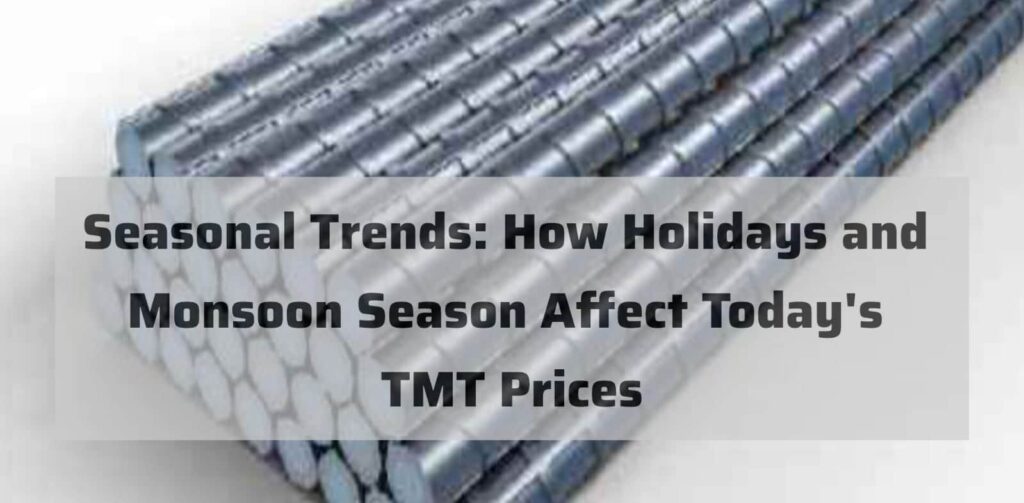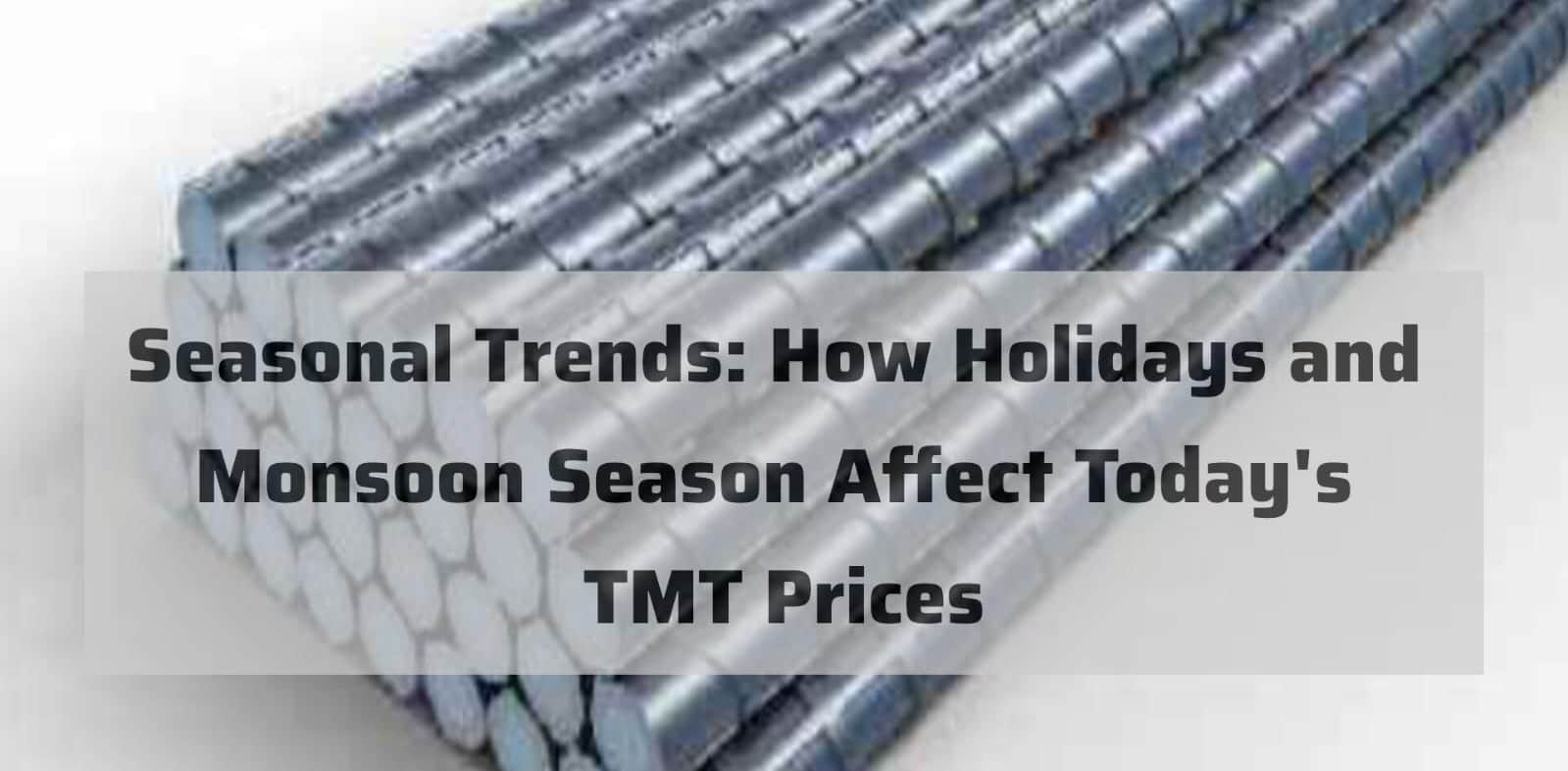Impact of Holidays:
1. Increased Demand:
– Diwali, Christmas, and other prominent festivals and local festivals push up the construction activities.

– Renovations and new constructions are done before celebrations because homeowners are involved in this process.
– It is believed that construction projects should begin during these good periods and be completed at the end of such periods.
2. Limited Supply:
– Suppliers may not readily supply TMT bars during holiday periods as they are likely to experience high demand, and therefore stock up their supplies.
3. Price Hike:
– Due to this, the demand for TMT bars has gone up and the supply remains very limited hence the high prices for the TMT bars.
– Suppliers may increase the prices of goods before the demand increases due to a fear of scarcity in the future.
Impact of Monsoon Season:
1. Reduced Construction Activity:
– Monsoon season usually occurs from June to September depending on the area. In this period, it is associated with the occurrence of storms and other undesirable weather conditions.
– Building and construction activities are carried out in the open area and due to the climatic conditions of the country, the construction work is comparatively low during this period that’s why the requirement of TMT bars is less.
2. Price Decrease:
– It has also been established that TMT bar prices are normally cheaper during the monsoon season. This can be attributed to the fact that there is reduced demand for building construction materials.
– This is an incorrect statement because suppliers will not lower their prices during the monsoon season. This assists them in selling products they need to offload for inventory space and to ensure they receive cash for their operations.
3. Logistical Challenges:
– This is because supply chain networks are usually along the roads and where there is flooding, the roads will be closed hence disruption of the supply chain network. This frequently causes transportation delays and higher costs of logistics, especially in cases where a large number of goods have to be transported simultaneously.
– Sometimes it may take a short period before the company experiences a shortage in some of these areas. Such shortages may result in localized price effects even if its overall direction is flattening, thereby potentially having a further impact.
Global Market Influence:
1. Raw Material Costs:– Market volatility affecting the prices of raw materials that are used in the production of TMT bars can have a strong impact. It regularly affects the shift in the seasonal price volatility of TMT bars.
2. Government Policies: – The results further indicate that policy changes in the construction and infrastructure development domain area can also influence the situation. They can also control the demand and supply of TMT bars and set their price as well.
3. International Trade Dynamics: – They are as follows: The condition of world trade and the regulations of imports and exports cannot be overlooked. They can either reinforce the seasonal trends or counteract them in determining the TMT prices.
Strategic Considerations for Stakeholders:
1. Optimizing Procurement:
– This means that the stakeholders should be very careful when planning for purchase as the prices may vary depending on the season. This method assists in the enhancement of cost control in an efficient way.
2. Budgeting for Projects:
– A good budget must therefore consider such factors as price hikes during the holiday season. It should also factor into its analysis the usual price drops that are observed during the monsoon season.
3. Project Timelines:
– It is critical to match up project schedules with these seasonal patterns. It can help in controlling costs and avoiding project delays as it assists in controlling expenses.


